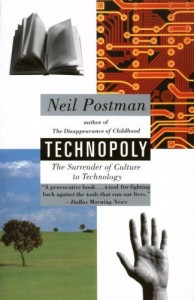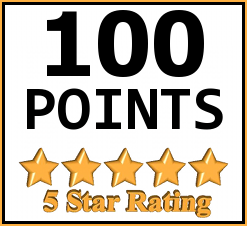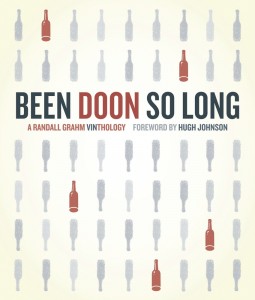We live in a culture that is gradually elevating a single virtue above all others: efficiency. And why not, after all? What could possibly be wrong with efficiency? Given the choice, isn’t it better to do something more quickly, more consistently, and for less money? There are some areas of life, however, that don’t clearly benefit from an efficient approach. Some things are better taken slowly, savored, and generally done in the most inefficient way possible. Still, we often try to improve the efficiency of even those areas that are most in opposition to the efficient mindset.
At its core, wine is nothing if not inefficient. Wine is a waiting game—from the vine to the barrel, from the barrel to the bottle—and it has only been recently that winemakers have started to try to exact the forces of efficiency on the winemaking process in a profound way. But these forces don’t end with the winemaking process. We, the wine drinking public, have even demanded efficiency in wine tasting, to the point where we demand that someone else do the work of picking out the good wines from the bad.
 The tools that we use to increase efficiency can be broadly referred to as “technologies.” The American social critic Neil Postman wrote extensively on the subject of technology, including an entire book called Technopoly that was devoted to the topic of how cultures fall prey to their technologies. This process can be seen in the culture on a general level, but you can also see how the traditions and practices of more specific communities are superseded by the demands of technology. Here in America, almost every area of our life has been impacted by the march of technology, including the wine business. This isn’t always a bad thing, but one of the recurring themes in Postman’s writings is that “Technology giveth and technology taketh away, and not always in equal measure.” Unfortunately, few of us question what is being lost or gained with the introduction of a new technology.
The tools that we use to increase efficiency can be broadly referred to as “technologies.” The American social critic Neil Postman wrote extensively on the subject of technology, including an entire book called Technopoly that was devoted to the topic of how cultures fall prey to their technologies. This process can be seen in the culture on a general level, but you can also see how the traditions and practices of more specific communities are superseded by the demands of technology. Here in America, almost every area of our life has been impacted by the march of technology, including the wine business. This isn’t always a bad thing, but one of the recurring themes in Postman’s writings is that “Technology giveth and technology taketh away, and not always in equal measure.” Unfortunately, few of us question what is being lost or gained with the introduction of a new technology.
One technology I have started thinking a lot about recently is the wine score. We don’t normally think of something like a wine score as a technology, but Postman refers to things like IQ tests, relationship compatibility surveys, and even wine scores as “soft technologies.” These are tools that we use to control information and to efficiently assign a label to people or things. In the case of wine, the goal is to assign an objective measurement to the quality of a wine. Many writers have already expounded on the folly of trying to make an almost entirely subjective experience into an objectively quantifiable one, so I won’t spend the time here rehashing that topic. I will say that I believe wine scores, and for that matter IQ scores, are essentially empty numbers, devoid of any real meaning. As Postman says, there is “…no test that can measure a person’s intelligence,” and the same applies to measuring the quality of a wine.
All of this leads me, as a wine blogger, to an existential dilemma of sorts. The irony of this post is not lost on me, since on my own blog I post a 5-point score for each wine I review. I could seek to provide some kind of justification for my actions, but I won’t. I readily admit that I feel a certain degree of cognitive dissonance every time I put together one of my reviews. In one breath, I say that I feel that wine scores are essentially meaningless, and in the next I add to the vacuum of meaning by posting my own scores on my blog. I complain about Robert Parker’s 100-point scoring system, but what really makes my own 5-point system more meaningful?
 I understand that the average wine consumer lives in a complicated world, flooded with options for wine. Many feel overwhelmed by the sheer volume of choices, and they look to the scores issued by Robert Parker or The Wine Spectator to help them navigate the jungle of options. Readers of wine publications of all types have come to expect the simple and efficient ratings for wines, but is the efficiency of the rating both the benefit and the curse? Whether scored on a 100-point scale or a 5-point scale, wine scores seem to be efficiently misleading, or at best of questionable benefit. They skip right past everything of meaning about a wine, everything that would really give the consumer an idea of whether the wine might appeal to their palate, and replace it with a number intended to imply an objective measure of quality that simply doesn’t exist.
I understand that the average wine consumer lives in a complicated world, flooded with options for wine. Many feel overwhelmed by the sheer volume of choices, and they look to the scores issued by Robert Parker or The Wine Spectator to help them navigate the jungle of options. Readers of wine publications of all types have come to expect the simple and efficient ratings for wines, but is the efficiency of the rating both the benefit and the curse? Whether scored on a 100-point scale or a 5-point scale, wine scores seem to be efficiently misleading, or at best of questionable benefit. They skip right past everything of meaning about a wine, everything that would really give the consumer an idea of whether the wine might appeal to their palate, and replace it with a number intended to imply an objective measure of quality that simply doesn’t exist.
 In his book, Been Doon So Long, Randall Grahm writes that “Wine criticism, despite its best intention, often seems to verge on trivializing the splendor of its subject matter—maybe due to the utter inadequacy of language to capture wine’s unique character—and often seems to tire one out, rather than inspire.” All too often, efficiency and trivialization go hand in hand. If words are too feeble to do justice to a topic as complex as wine, numbers are even more so. If it is difficult to get a picture of the flavor of a wine described as “cloying, with hints of raspberries and vanilla;” it is even more difficult to imagine what 90 points tastes like.
In his book, Been Doon So Long, Randall Grahm writes that “Wine criticism, despite its best intention, often seems to verge on trivializing the splendor of its subject matter—maybe due to the utter inadequacy of language to capture wine’s unique character—and often seems to tire one out, rather than inspire.” All too often, efficiency and trivialization go hand in hand. If words are too feeble to do justice to a topic as complex as wine, numbers are even more so. If it is difficult to get a picture of the flavor of a wine described as “cloying, with hints of raspberries and vanilla;” it is even more difficult to imagine what 90 points tastes like.
I’ll admit I have many unanswered questions when it comes to this topic. Ultimately, those of us who write about wine are looking for the best way to describe an experience that is inherently personal and subjective. Is there anything wrong with using scores to accomplish this? I think this is something each writer has to answer for him or herself. I’m not sure whether I will always post scores on my reviews, but I do know that the most efficient answer is not always the best one.
 Ben Simons is a project manager for a web development company and specializes in marketing and social media consulting. He publishes the blog Vinotology, which sometimes focuses on the wines of his home state of Texas.
Ben Simons is a project manager for a web development company and specializes in marketing and social media consulting. He publishes the blog Vinotology, which sometimes focuses on the wines of his home state of Texas.

![Reblog this post [with Zemanta]](http://img.zemanta.com/reblog_e.png?x-id=2a09b94e-32c5-4699-9b2c-ab12c331b35e)